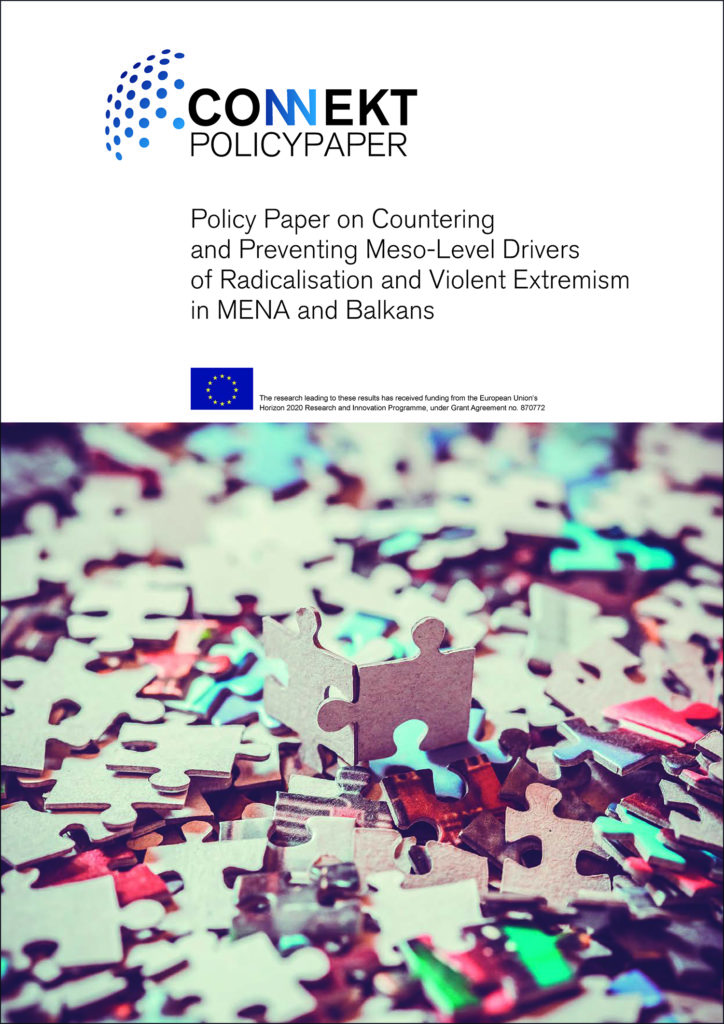The CONNEKT (Contexts of Extremism in MENA and Balkan societies) project, spanning countries in the MENA region (Egypt, Jordan, Morocco, Tunisia) and the Balkans (Bosnia and Herzegovina, Bulgaria, Kosovo, North Macedonia) regions, analyses drivers of radicalisation and violent extremism across macro (institutional), meso (community) and micro (individual) levels. The first phase of meso-level research explores diverse communities that are potentially vulnerable to radicalisation and provides important insights into relevant drivers of radicalisation. The second phase of meso-level research goes into the prevention factors and attempts to provide recommendations for resilience building among the selected communities. CONNEKT’s aim was to look into real or potential violent extremism (VE) contexts and drivers within sub-state communities. Case-study analysis was chosen for its effectiveness in exploring these contexts, with proposed guidelines to guide case study selection by country teams. The selection process considered the relevance and outcomes of macro analysis on radicalisation drivers, aiming for diverse case studies to capture different combinations of drivers and conclusions. Involving stakeholders was also emphasised to align research results with identified needs and challenges. Nonetheless, the term “community” encompasses various social interaction contexts, including schools, villages, churches/mosques, civic associations, or online communities like Salafi lecturers, among others.
This paper starts with “Unravelling the drivers in the first phase – a mosaic of case studies”. In this section, we establish the groundwork that emerged from the investigation of drivers of radicalisation. The narrative progresses to the exploration and discovery of relevant meso-level drivers out of those that CONNEKT explores, emphasising key patterns in the findings. The subsequent thematic synthesis unveils the interconnectedness of drivers across diverse levels of analysis. Transitioning into the second section, “From analysis to action in the second phase – building resilience”, the paper explores the evolution from driver analysis to prevention strategies. It underscores the importance of community-level interventions in understanding prevention strategies. The exploration extends to case studies on prevention and resilience, delving into main findings and lessons learned. The section culminates in the identification of synergies and cross-learning opportunities, proposing a framework for collaborative and individual initiatives across regions. The final section, “Policy implications and recommendations”, synthesises the research findings into targeted policy recommendations for stakeholders at local, national, and international levels. The conclusion reiterates the pivotal role of meso-level analysis in comprehending radicalisation.


